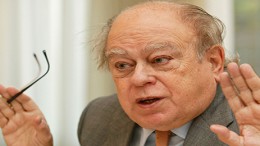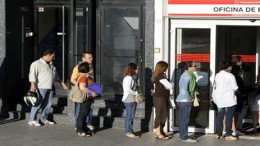Catalonia and the Pujol Case: corruption in the heart of the establishment
MADRID | By Fernando G. Ubaneja | Several corruption cases have put Spain under the international spotlight. The latest, which emerged by surprise on Friday and has been the talk of the town since then, is related to one its most controversial and rich regions: Catalonia. The independence campaign suffered a setback after the leading figure of Catalan nationalism Jordi Pujol admitted keeping undeclared funds in fiscal havens.



